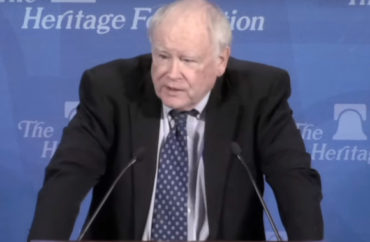
Beware Bowling Green, among others
When you try to replace civic institutions like churches and Rotary clubs with unfettered individualism, it harms the “set of moral imperatives that provide the glue that allows our nation to work so well,” according to higher education economist Richard Vedder.
One symptom of this moral decline – if not a cause – “is that universities increasingly lie and cheat, both their customers (students) and the general public,” the Ohio University emeritus professor writes for the Independent Institute.
His prime example is the University of Oklahoma’s 20-year lie about its alumni donations, now the subject of an attempted class-action lawsuit.
But the Sooners aren’t unique in trying to fraudulently inflate their college rankings, Vedder says, citing Temple University and even the “very distinguished” Claremont McKenna College as bad actors:
The consequences of lying are relatively trivial in these cases. What can U.S. News or Forbes do? Nothing really, except to exclude the schools from future rankings for some time period (which both have done). Does the broader higher education community care? No, judging from its actions. Like the NCAA with regards to the University of North Carolina phantom course scandal, absolutely nothing has been done to further hurt and embarrass the transgressors. Have the accrediting agencies put schools on probation for “lying and deception?” Has the American Council o[n] Education condemned this inappropriate behavior? No. Lying and cheating, at least in moderation, is seemingly accepted and arguably even tacitly encouraged.
Vedder, who has a new book on the subject, is not any kinder to the “usually clueless” and “totally ineffective” trustees who enable rampant lying.
It shouldn’t be a surprise that universities lie and cheat on rankings lists, since they’ve been bamboozling prospective students for decades, Vedder writes, citing a new book on the “moral mess” of higher ed:
Colleges entice students to attend implying that it is a relatively risk-free path to a prosperous life, which it is not. Do the colleges tell you up front what their dropout rate is, or point out a large percent of freshmen don’t make it into the sophomore year? Do they point out that a significant portion of their graduates is underemployed? Do they tell us about the risks as well as the rewards?
His example here is Bowling Green State University, and if you or someone you know is considering enrolling there, you’ll definitely want to look at the statistics he cites.
Like The College Fix on Facebook / Follow us on Twitter




Add to the Discussion